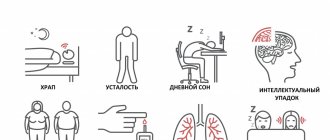Adviсe
- What is sleep talking?
- Sounds made in sleep
- What does a person say in a dream?
- Why does a person talk in his sleep: reasons
- Why does a child talk in his sleep?
- A person talks in his sleep, should I worry?
- How to prepare before going to the doctor?
- Treatment for a person talking in their sleep
- How to stop talking out loud in your sleep?
The theme of the dream is mysterious and interesting. Research by scientists has shed some light on what happens to a person during sleep. All people know that proper rest is necessary. The quality of sleep determines how alert a person will be the next day. Is it possible to get enough sleep if you scream or utter strange sounds in your sleep? If your roommate or partner is complaining about mumbling at night, you're probably wondering what to do about it. Let's take everything in order and find out why people talk in their sleep?
What is sleep talking?
Doctors use a similar term to describe the sounds made by a person during a night's rest. Conversations during daytime sleep were practically not recorded. Scientists have given the phenomenon a scientific name - somniloquy. Doctors consider talking in your sleep a safe phenomenon if it is not accompanied by additional symptoms.
What is sleep speaking in the usual sense? These are words, sounds, and screams spoken by a person during sleep. At the same time, the sleeping person does not remember in the morning that he had a dialogue. It turns out that you may not know about your tendency to sleep talk for a long time. Until a loved one or partner with a sensitive sleep appears nearby. Usually, when people learn about such a phenomenon, they become embarrassed and worry about their health.
Talking in a dream occurs in 5% of the world's inhabitants. The bulk of this falls on children under 10 years of age. In childhood, more girls suffer from somniloquy, and in adulthood, more men. Don't be upset if you are included in these percentages. Dream-speaking is safe for health and is normal for humans.
Main reasons
In medicine, the condition when a person speaks in his sleep is called somniloquy and is classified as parasomnia. During sleep, grinding of teeth occurs, sometimes walking or involuntary motor activity of the limbs. Unlike other symptoms, this is not a pathology and does not harm health in any way. Most often, this goes away with age or with the disappearance of stress factors that lead to overstimulation during the day.
The sleeper himself never remembers in the morning about the night stories. Only loved ones can find out about them, who can witness conversations due to sensitive sleep.
If somniloquy does not cause inconvenience or discomfort, then you can ignore it. If you are overexcited during sleep - screaming, crying, moaning, which is repeated regularly, it is better to consult a doctor.
Physiology
Sleep, as well as the capabilities of the brain, have not been fully studied. Therefore, the nature of the causes of somniloquy can be different, and scientists cannot agree on one opinion regarding their occurrence.
Factors contributing to late night conversations:
- Some scientists believe that somniloquy is hereditary;
- Normally, the brain should rest during sleep. Sometimes unforeseen situations occur when the receptors are overloaded and cannot temporarily turn off. In this case, there is restlessness and talking in sleep;
- In childhood, the psyche is very unstable. Therefore, the child can repeat new words he hears in his sleep. This is how the speech apparatus develops and improves. This is considered normal unless other symptoms of a sleep disorder are present;
- Adults, due to an excess of negative emotions during the day, at night can not only talk out loud, but also scream and wave their arms. This is how the brain is freed from accumulated aggression. At this moment, sometimes even very decent people can swear, which is not typical for them during the waking period;
- People talk in their sleep due to excessive emotionality. They perceive any significant event that occurred during the previous day very closely. This is reflected in the appearance of talking, laughing, crying or screaming when resting;
- A separate category of sleep talkers are people with certain mental disorders. They may moan, grind their teeth, sleepwalk or moo. More often this occurs during an exacerbation of the disease or when the brain is overexcited.
Other causes of sleep talk
In addition to physiological factors, sleep quality is affected by many others. For example, what room does a person sleep in, what did he eat before bed, who did he talk to.
What makes a person speak out loud in a dream:
- Irritating factors during rest - noise, uncomfortable bed, unpleasant odors.
- Watching horror films, thrillers that leave a negative impression.
- Violation of the daily routine, physical or mental fatigue, insufficient hours of rest. This leads to a disruption of the nervous system, as a result of which not only somniloquy occurs, but also other parasomnias - sleepwalking, involuntary waving of the arms.
- Overstimulation of the central nervous system due to frequent stressful situations.
- A dense and heavy dinner. Fatty, fried, spicy foods excite certain centers of the brain, forcing it to work even during sleep.
- Drinking energy drinks, coffee and other caffeine-containing products at night.
- Diseases accompanied by increased body temperature, poor health. In this state, a person raves, cries or groans in his sleep.
- Poor sleep quality is a side effect of certain medications. If such a phenomenon is observed, then the treatment needs to be reconsidered;
- Drugs and alcohol. Toxic substances destroy cells of the brain and central nervous system, causing them to become overexcited.
Sounds made in sleep
Before diagnosing yourself, make sure you talk at night. Perhaps a loved one thought or had a bad dream. To be sure, ask your partner to write down or document what is happening. To do this, it will be useful to understand what sounds a person pronounces in a dream:
Conducts a dialogue or monologue. The sleeper talks calmly and asks questions. Answers questions from an invisible interlocutor. Or he simply pronounces individual phrases. The eyes are tightly closed. Whispers or screams. Quiet words or loud sounds indicate the presence of sleep talk. If a person behaves restlessly, spins, and jerks his legs, then wake him up. Makes strange sounds or mumbles. Mooing and other gobbledygook also refers to somniloquy. It is not necessary that you understand what is being said.
If you talk to the sleeping person, ask questions, you will receive answers. Do not pay attention if a loved one said something offensive or shouted curse words. They do not apply to you, do not look for a connection in this phenomenon. And even more so, do not reproach your loved one in the morning for words spoken in a dream.
What does a person say in a dream?
The opinions of scientists observing this phenomenon are divided. Depending on the circumstances and accompanying reasons, a person pronounces words or sounds. They can be related to events in life or have absolutely nothing to do with the sleeping person. What does a person say in a dream?
Repeats words spoken during the day. People suffering from emotional instability are prone to this phenomenon. Conducts a conversation with a person from a dream. Sometimes it seems that the sleeper is conducting a dialogue. Researchers explain this phenomenon as a human reaction to dreams. Monologues thrown up by the subconscious. Some scientists are convinced that conversations arise as a result of a person’s reflection on long-standing events. The subconscious helps the sleeper by presenting possible solutions that result in a nightly monologue.
Secrets Revealed
Many believe that talking in a dream can lead to the revelation of the secrets of the sleeper. However, after studying this phenomenon, scientists came to the following conclusions:
- The spoken phrases are in no way connected with the past or future of the sleeping person. Even if he answers the question posed, you should not trust the answer.
- Some expressions are still associated with events in the life of the sleeper, but are greatly distorted.
Why a person talks in his sleep, the reasons can be found out if you keep daily records of those moments that affect the functioning of the central nervous system. Somniloquy is not considered a dangerous disease, and its symptoms gradually decrease without any treatment. It does not affect the quality of sleep and does not lead to mental disorders.
Why does a person talk in his sleep: reasons
It has long been proven that a person goes through sleep phases during rest. They are divided into several stages. Each of which enters the fast or slow phase of sleep. Most researchers are inclined to believe that somniloquy manifests itself during the rapid stage of sleep. This statement is supported by the screams that appear during nightmares. People experience bad dreams during the REM stage of sleep. But quiet conversations, whispers and other sounds are also observed during the slow phase.
Let's list the reasons why a person talks in his sleep:
Medical factors. Talking in a dream is observed during fever, high temperature, and infectious diseases. Somniloquy can be a side effect after taking the medicine. Do not abuse medications, follow the dosage. Dialogues in a dream are a typical symptom for drug addicts or people exposed to toxins. Emotional reasons. If a person has experienced severe stress during the day, then at night the body will “digest” what happened. In such situations, the sleeper talks about an urgent problem, tries to find a solution, and comes to terms with what happened. Sleep talk due to the emotional component occurs in children and sensitive people. Psychological factors. Mental disorders lead to insomnia or restless sleep. Such a person falls asleep for a short time, rest is accompanied by talking, screaming, and moving around the bed.
It has been observed that aggressive people who hold back their anger during the day release negative emotions at night. At the same time, they speak vulgar words and behave aggressively. The phenomenon occurs due to the unconscious relaxation of the sleeper at night.
Reasons for talking in your sleep at different ages
The main reasons for talking in a dream are:
- depression. During this period, sleep disturbance occurs. He becomes superficial and restless. Sometimes the night guards can make you scream;
- neuroses. Such neuropsychiatric disorders are also accompanied by sleep disturbances;
- various diseases. For example, pneumonia, in addition to high fever, is accompanied by delirium and muttering;
- brain injuries. This includes contusions and injuries resulting from illness. Injuries can disrupt the centers that control sleep and speech;
- diseases of the central nervous system. These are diseases affecting the spinal cord and brain;
- severe mental illness. Mentally ill people often behave inappropriately. They can sit in bed at night and talk.
Also, late-night conversations can be triggered by a heavy dinner or drinking coffee.
Temporary sleep disturbances are caused by difficult news, an aggressive attitude, and increased impressionability.
In children
Pediatricians say that sleepwalking in children is harmless. If a child talks in his sleep, this, on the contrary, helps him adapt to the outside world.
Children's nervous systems are less stable than those of adults, and even a joyful event can become stressful for them.
With the help of muttering, babies help themselves move into the next stage of sleep, as if they lull themselves to sleep.
Children who are learning to speak often mutter familiar words in their sleep. Afterwards it is easier for them to reproduce them in reality.
If sleepwalking is accompanied by sleepwalking, confusion after waking up, or nightmares, this is a reason to contact a pediatric neurologist.
In teenagers
Teenagers are less likely to suffer from sleep deprivation, as their psyche becomes more stable.
In some cases, night muttering can be inherited, mainly through the male line.
In adults
Statistics say that 1 in 20 people talk in their sleep.
Men rarely have such episodes, but women talk almost every night. This is explained by the fact that ladies are more emotional and can get stressed even from a bright, positive emotion.
Sleep talking in adults is observed due to strong physical or emotional stress.
After stress at night, during sleep, the centers in the cerebral cortex that are responsible for speech are excited, and the person begins to mutter.
In the elderly
This phenomenon may occur in older people after taking certain medications.
An overdose of antipsychotics and tranquilizers causes a hallucination, which is accompanied by talking in a dream.
Why does a child talk in his sleep?
Young children often talk in their sleep. Frightened parents turn to the pediatrician and receive an answer that this phenomenon is considered normal. Scientists are convinced that dream-speaking helps young children adapt to the world around them. The child’s brain processes new impressions and emotions at night. Since the psyche of children is weaker than adults, every day seems to be a little stressful for the child. Experiences are expressed through nightly conversations.
Why does a child talk in his sleep, scream or cry? This phenomenon already indicates the presence of a nightmare or severe stress. Remember what happened during the day that could have scared the baby. Take your baby in your arms, slowly wake him up and calm him down. If nightmares recur, contact your pediatrician immediately.
Ways to get rid of the problem
Infrequent nighttime conversations do not pose a threat to physical or mental health, and therefore do not require special treatment. However, manifestations of somniloquy can cause great inconvenience for people around them. The first thing that will help you stop talking in your sleep is following a daily routine:
- lack of excessive physical or mental activity in the evening, especially before going to bed;
- physical fatigue;
- proper rest from 6 to 8 hours a day;
- going to bed at the same time.
A person talks in his sleep, should I worry?
Basically, talking in a dream brings inconvenience, but only to the person nearby. In other cases, the number of words spoken and the frequency of dialogues per week do not affect the state of the sleeper. But, there are cases when you should take a closer look at the “talker”.
When should you be concerned if a person talks in his sleep?
The sleeper experiences night terrors. They are recognized by screams and active human behavior. The sleeper closes his legs, twists on the bed, and screams shrilly. If you connect a person to a device that monitors the person’s state during sleep, you will see how the eyeballs move under closed eyelids. The described phenomenon is called a nightmare. In such a situation, the person needs to be woken up. Be prepared that this is not easy to do. Act gently, slowly and carefully, do not frighten the sleeper even more. Constant nightmares have a bad effect on the human nervous system, so medical intervention will be required. Squealing, aggressive behavior. Occurs due to disruption of the REM sleep phase. If a person does not have time to systematically enter this period (wakes up due to the alarm, devotes little time to sleep), then a disruption of the usual cycle occurs. A person in this state makes movements at night. A doctor's help is required to restore sleep cycles.
Walking and other movements. Talking in your sleep is often accompanied by sleepwalking. The person moves around the room and can go outside. In this state, eating disorders are noticed when the sleeper eats while sleeping. Sleepwalking is dangerous because a person does not control himself. Unconscious eating at night is a sign of digestive system disorder. Therefore, if such factors are detected, consult a doctor.
When should you start worrying?
If episodes of sleep talk occur rarely and sporadically, there is no need to worry: this is a consequence of stress. But if an adult speaks regularly in a dream, this may indicate a mental disorder; you can show it to a doctor.
Reasons for concern if an adult talks in his sleep:
- a person feels tired when he wakes up;
- sleepwalking in adulthood (after 25-30);
- dependence on alcohol or drugs, as a result of which a person begins to talk in his sleep;
- other signs of mental illness: depression, insomnia, inadequate perception, sleep disturbances (less than 7-8 hours);
- the cause may be damage or the evil eye brought upon a person by an ill-wisher
How to prepare before going to the doctor?
Isolated instances of speaking do not lead to a decision to visit a doctor. If a person experiences discomfort, the signs described above, and interferes with the sleep of loved ones, then it would be a good idea to go to the doctor. Since the problem is quite specific, the specialist will need some data. Write them down in advance.
How to prepare before going to the doctor? Note the following points:
Talk time. On average lasts for 30 seconds. Ask a loved one to record the dialogue and record its duration. Ask your parents in advance if similar cases occurred in childhood. If yes, what measures were taken. At what age were the conversations observed, and did anything influence their occurrence? Duration of sleep. Mark what time you go to bed and what time you get up in the morning every day. Remember if you woke up at night and for what reasons. Try to maintain a sleep schedule: set aside 7–9 hours for rest. At the same time, go to bed and get up at the same time every day. Taking medications. Write down all the medications you are currently using. Consider the medications you took 1–2 months before the onset of sleep talk. Evening ritual. Tell your doctor how you prepare for bed. What foods do you eat at night, what drinks do you drink. You fall asleep listening to a movie, a book, or only in complete silence and with the lights off.
Information about physical activity during the day will not be superfluous. Do not hide events that have left a mark on your life: the death of a loved one, unfair dismissal, a broken car or other stressful events. Having a complete picture, the doctor will quickly identify the causes of somniloquy and adjust your lifestyle.
How to prevent talking in your sleep
To prevent somniloquy, first of all, you should avoid psycho-emotional stress and conflicts. A good way to cope with the stress of the day is to take a soothing hot bath with aromatic oils. You should ensure sleep in complete silence and darkness, avoid drinking drinks that stimulate the nervous system and receiving new information before going to bed.
It will be useful to wean yourself from watching television programs and films with intense plots or violent scenes.
Treatment for a person talking in their sleep
To make a diagnosis of sleep speaking, the doctor does not conduct additional research. Information about the condition is provided by the patient. In rare cases, a person is given a polysomnography. The study helps identify sleep disorders.
Treatment for sleep talking is indicated if somniloquy is a symptom of a serious medical condition. In this case, therapeutic methods are directed against the underlying disease. After defeating the disease, unpleasant symptoms will go away, including talking in your sleep.
When to sound the alarm
Most often, talking in your sleep is not a pathology. But if they are repeated regularly, the intensity increases, you feel worse after waking up, you feel weak and tired, you need to undergo an examination.
Somniloquy is considered dangerous in the following cases:
- Sleep talking is accompanied by snoring, signs of apnea (short-term cessation of breathing), while the person is also a sleepwalker, that is, he can involuntarily walk while asleep. These symptoms may indicate serious disturbances in the functioning of the central nervous system. In this case, you need to contact a neurologist or therapist;
- Night talking appeared at the age of 25 years and older, and had not previously been observed. At the same time, they are of an aggressive nature - the sleeping person screams, swears, waves his arms, can walk around the apartment, roar;
- If sleep does not bring complete rest. A person feels weak and tired after waking up, and during the day - loss of strength, drowsiness and excessive fatigue.
It is quite difficult to find a doctor who deals with sleep pathology - a somnologist, especially in small towns. Therefore, first of all, you need to contact a therapist who will conduct an examination and refer you to a neurologist and other doctors.
One of the important studies that will show sleep disturbance is polysomnography. It is carried out using sensitive technology that records every movement, breathing, and brain activity of a person during rest.
How to stop talking out loud in your sleep?
There are preventative measures to help reduce talkativeness during rest. The methods have no scientific backing and are limited to ensuring long and restful sleep. How to stop talking out loud in your sleep?
Relax after a hard day. Take a bath with essential oils, listen to classical music, drink mint tea, warm milk or a sedative.
Don't overeat at night. Eliminate fatty, heavy, spicy foods from dinner. Eat something light: vegetables, kefir, lean fish. Remove the negativity. Watching the news, movies with bloody scenes or reading horror stories at night will not lead to restful sleep. Avoid aggressive sources of information before your vacation.
During sleep, the body's functions function. Therefore, during a night's rest a person moves, talks, smiles, and changes his facial expression. The number of people who talk in their sleep is much greater than recorded, since not everyone is ready to confess. In 85% of cases there is no cause for concern. Sleep speaking appears as a result of shocks, is noticed in sensitive people, or is inherited.
Natural disturbances
It is not known exactly why a person talks out loud in his sleep. All kinds of studies contradict each other. Some scientists believe that people in their sleep repeat phrases that were uttered shortly before sleep. Someone thinks that monologues and dialogues in a dream are nothing more than the imagination of consciousness. The third group of researchers believes that the sleeper voices the events that happen to him in this state.
Why does a person talk in his sleep, physiological reasons:
- Heredity. Just like sleepwalking, sleep-speaking is inherited.
- Active brain processes during sleep. It is believed that during sleep, brain cells “rest,” but often the receptors do not turn off and continue to work. At such moments, a person experiences restless sleep with conversations.
- The period of developing speech. This applies to young children who are starting to develop. In dreams, babies pronounce new words they heard during the day.
- The accumulation of aggression within oneself. When a sleeping person swears, screams and waves his arms, it means he is under aggressive influence accumulated while awake. All the negativity can spill out at night.
- Epilepsy. People who suffer from epileptic seizures often chat in their sleep during the same period of the night. If you try to wake up a sleeping person, a more aggressive reaction is possible.
- High sensitivity. Emotional people, who have a vivid imprint of certain events in their memory, can splash out their emotions in late-night conversations.
- Mental disorders. Manifested by twitching, grinding teeth, shouting out individual words.
Small children can talk in their sleep after receiving vivid impressions (for example, after visiting the circus), adults - after emotional showdowns with family members or colleagues.










